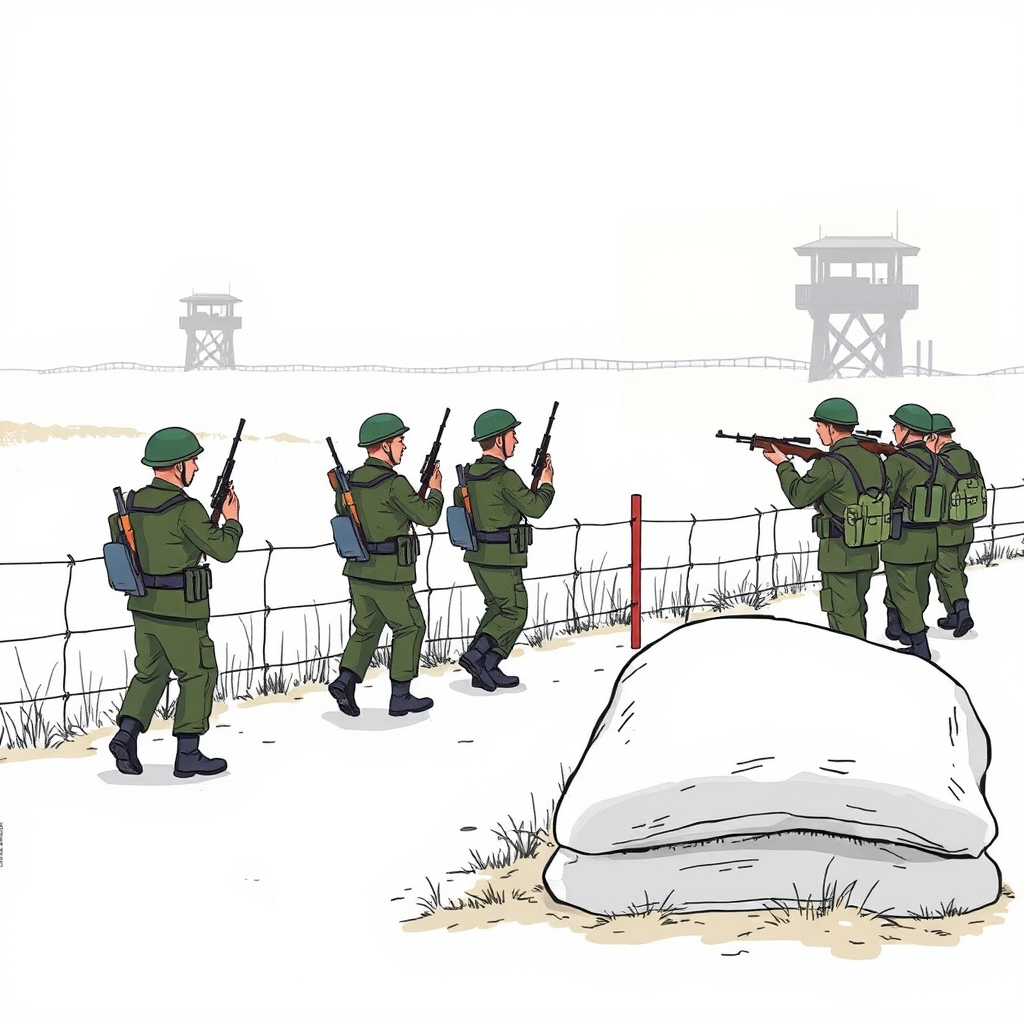North Korea Troops Cross Border, Shots Fired

Seoul, South Korea – South Korean forces fired warning shots Tuesday after approximately ten North Korean soldiers crossed the heavily fortified border separating the two Koreas, marking the first such intrusion in nearly a year. While the incident didn’t result in casualties and North Korea did not return fire, it underscores the persistent tensions along the Demilitarized Zone (DMZ), a 4-kilometer-wide, 248-kilometer-long buffer zone established after the Korean War.
According to South Korea’s Joint Chiefs of Staff, the North Korean soldiers briefly crossed the military demarcation line in the eastern sector of the DMZ before returning to their side following the warning shots and verbal cautions. The motive behind the intrusion remains unclear, though South Korean media suggests it may have occurred during a routine patrol related to ongoing efforts to reinforce border defenses – work North Korea announced in October as a response to what it termed “confrontational hysteria” from South Korea and the United States.
This incident follows a pattern observed last year when North Korean troops crossed the border three times, also prompting warning shots from the South. At that time, assessments suggested the intrusions were unintentional, possibly due to obscured demarcation lines in wooded areas.
The timing of this latest event is particularly sensitive. Animosity between the Koreas is heightened due to North Korean leader Kim Jong Un’s continued development of nuclear capabilities and his increasing alignment with Russia amidst the war in Ukraine. Furthermore, Kim has so far ignored calls from both Seoul and Washington to resume denuclearization talks.
The DMZ remains one of the most heavily armed borders in the world, riddled with landmines, barbed wire, and guarded by troops on both sides – a stark reminder of the Korean War’s unresolved armistice.
While the immediate situation appears contained, this incident serves as a worrying signal. The lack of clear communication and the potential for miscalculation in such a volatile environment are significant concerns. It’s crucial that both sides prioritize de-escalation and maintain open channels of communication to prevent further incidents and avoid a dangerous escalation of tensions. The current situation highlights the urgent need for renewed diplomatic efforts to address the underlying issues driving instability on the Korean Peninsula. The international community must actively encourage dialogue and work towards a lasting peace agreement to replace the fragile armistice that has defined the region for over seven decades.